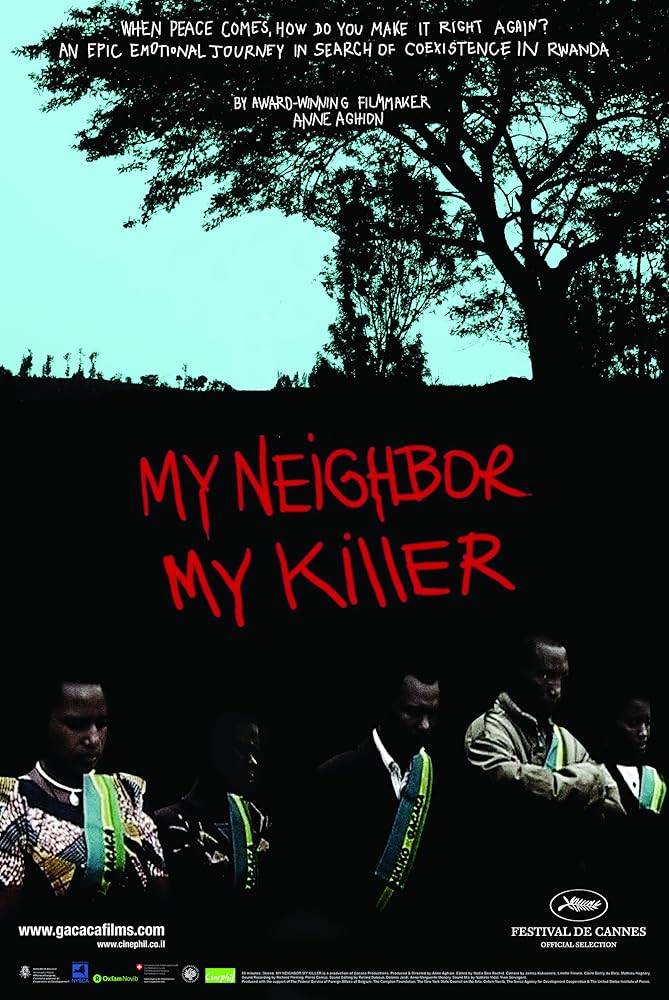
MY NEIGHBOR MY KILLER
(director/writer: Anne Aghion; cinematographers: Claire Bailly du Bois/Linette Frewin/Mathieu Hagnery/James Kakwerere/Simon Rittmeier; editor: Nadia Ben Rachid; music: Florida Uwera/Jos Gansemanns/Cecile Kayirebwa; cast: Annonciata Mukanyonga, Euphrasie Mukarwemera, Jean-Paul Shyirakera, Abraham Rwamfizi, Vianney Byirabo, Felicite Nyirasangwa, Euphrasie Mukarwemera; Runtime: 80; MPAA Rating: NR; producer: Anne Aghion; Gacaca Films; 2009-USA/France-in Kinyarwanda with English subtitles)
“Aghion’s educational film best serves as an important historical document.”
Reviewed by Dennis Schwartz
An excellent documentary on the human rights issue involved in the aftermath of the genocide that took place in Rwanda in 1994 between the Hutus and Tutsis. Around 1 million Rwandans were killed in a government-sponsored Hutu “ethnic cleansing” of the minority Tutsis.
Award-winning documentarian Anne Aghion (“Ice People”/”In Rwanda We Say… The Family That Does Not Speak Dies”) has filmed for close to ten years in a tiny hamlet to allow us to see the human faces on both sides in this overwhelming tragedy, as on the 15th anniversary of the genocide she interviews two women survivors (Felicite Nyirasangwa & Euphrasie Mukarwemera–both Hutu widows of Tutsi husbands, whose children were considered Tutsi) and two neighborhood men (Abraham Rwamfizi & Vianney Byirabo) accused of killing their families. In 2001 the government through its Gacaca Tribunals (open-air hearings with citizen judges) is releasing the killers and forcing them to live among the still-suffering victims. The idea is that the country must move on from the sorrowful past and rebuild the country as a unified one.
In this fragile experimental program in reconciliation, the confessed genocide killers are released from prison and the still traumatized survivors are urged to forgive them and live again next to the killers of their families. How they will coexist, remains to be seen. But this emotional, moving and poignant film captures the women’s anger and then resignation that there’s nothing they can do about it except to accept their bitter fate.
Aghion’s educational film best serves as an important historical document about the current justice process taking place by a new regime in the aftermath of Rwanda’s 1994 genocide. It’s a brutally bleak film that’s disturbing even if no gore is shown. The filmmaker acts as an observer recording the killers who one after another parrot a denial that they were killers, while the stunned victims have no choice but to watch this curious sense of justice taking place. Not a pleasant film, but a necessary one.
REVIEWED ON 11/17/2009 GRADE: B+ https://dennisschwartzreviews.com/